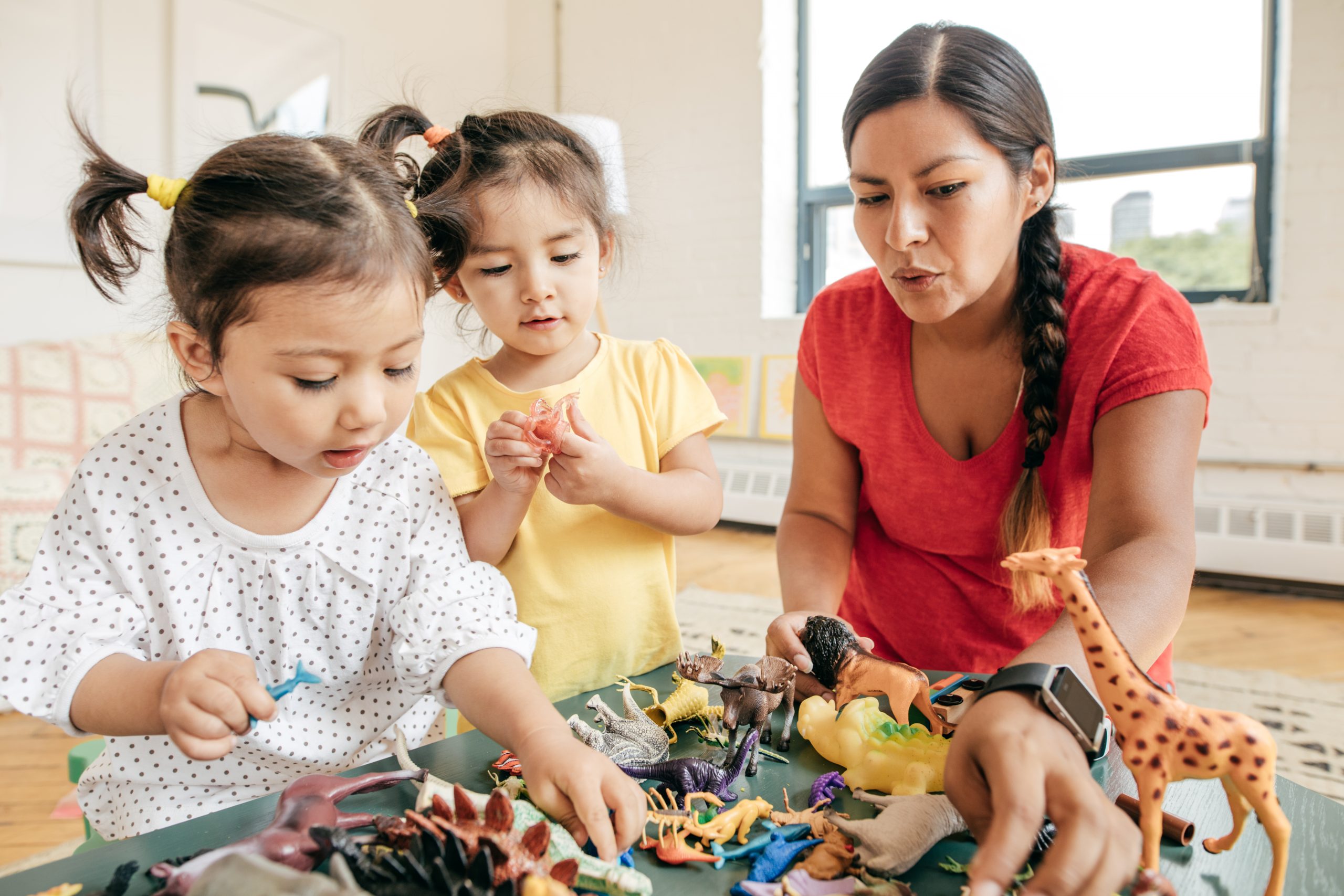Explore resources and activities relevant to courses that provide an introduction to the field of early childhood special education, including its history and major issues. These types of courses emphasize Instructional methods used in teaching and facilitating development in young children with disabilities.
Course Activity 1: Curriculum Modifications for Young Children with Disabilities
Students may have some prior experience including young children with disabilities in childcare and/or PreK settings. Ask students to read/review this blog series for main ideas ( Curriculum Modifications: Introduction to a Blog Series, Which to Choose? Universal Design for Learning or Accommodations, Curriculum Modifications: Materials Adaptation, Curriculum Modifications: Environmental Adaptations) The blogs can be used as supplements for course readings and lectures. Use the following questions for class discussion and/or a quick in-class writing assignment: What environmental adaptations have you observed or implemented? What has been your experience adapting materials for individual children? What does Universal Design for Learning look like in a preschool setting? How can teachers and therapists support families in making accommodations for their child at home?
Course Activity 2: Transition to Kindergarten Planning for Young Children with Disabilities
Using the suggestions in the blog, Careful Planning, Collaboration Can Aid Smooth Transition to Kindergarten together with other resources about transition planning for young children with disabilities, have students work in pairs to develop a checklist for transition planning. The checklist should include a timeline for gathering reports, meetings, classroom observations and other necessary components to ease the transition for the child and family.
Course Activity 3: Including Young Children with Disabilities in Project Work
Two blogs, Universal Design for Learning and Project Work and Discussing Project Work with Children in Inclusive Classrooms address Project work in inclusive settings. Project work provides young children the opportunity to study a topic in depth (e.g., trees, tractors, fish, etc.). In an inclusive setting, teachers and therapists intentionally embed opportunities to address individual children’s learning objectives within the components of projects. Have the students create a list of questions they have about engaging young children with disabilities in project work. Invite a guest speaker (either online or in person) to respond to the students’ questions.
Course Activity 4: The Worm Project
The Worm Project occurred in a public school preschool classroom where all of the children had IEPs. How might project work be adapted so all children in a PreK class can participate? What did the teachers observe as the children became engaged in studying worms? In planning a project, how would students demonstrate individual children’s progress on IEP goals/benchmarks?
Course Activity 5: Adapted Lesson Plans
Students can use the adapted lesson plans, Language Arts Lesson Addressing Benchmark 1.C. ECa and Math Lesson Addressing Benchmark 10.B ECa as a template for developing their own lesson plans. Discuss this format and compare it to other lesson plan formats (e.g., in the course textbook, a cooperating teacher’s lesson plan format, etc.) Using the adapted lesson plan format, students may work in pairs to create a lesson plan and include adaptations for a child with disabilities. The child with disabilities may be enrolled in their current placement setting or be described in a case study written by the course instructor. The adapted lesson plan should include one or more of the IELDs benchmarks.
